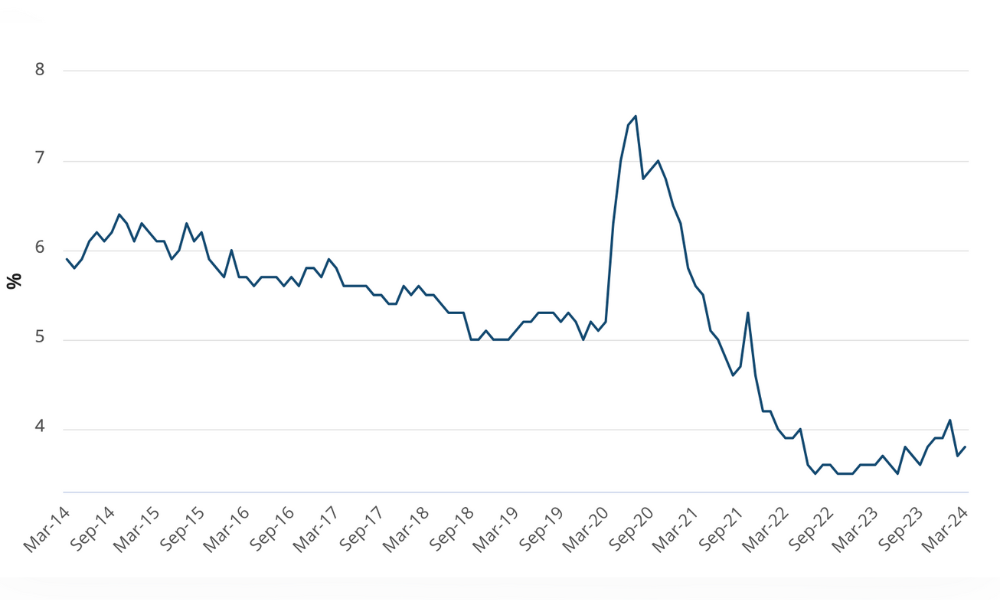Learning and development managers (in the $80–$160,000 bracket), tax accountants ($120–$140,000) and financial controllers ($150–$180,000) are among the top ten hottest jobs for 2008
Learning and development managers (in the $80–$160,000 bracket), tax accountants ($120–$140,000) and financial controllers ($150–$180,000) are among the top ten hottest jobs for 2008. A survey of 642 recruitment professionals by Talent2, found that other hit jobs for the year include: internal communications managers ($100–$200,000), corporate social responsibility managers ($120–$180,000); FMCG brand managers ($100–$135,000); solutions architects ($160–$200,000); engineers – all types up to $300,000; security managers (IT) ($150–$250,000); and marketing campaign managers ($80–$100,000). “The massive skills shortage in Australia is causing employers to seek out more lateral solutions like sourcing workers from overseas, outsourcing or hiring contract staff or alternate strategies like golden handcuffs, talent pooling or retention schemes for high-performing personnel,” said Neil Galvin of Talent2.
Workers unaware of OHS and bullying
Forty per cent of Australia’s workforce is unaware of workplace policies such as OHS and workplace bullying, according to an online poll conducted by Harmers Workplace Lawyers. Nearly a half of all those surveyed admitted that they had never received any formal training or guidance with regards to workplace bullying or OHS issues, said Joydeep Hor, managing partner at Harmers Workplace Lawyers. “The cost of bullying to employers is not just the potential financial penalties. Bullying in the workplace can lead to unmotivated staff; absenteeism and ultimately a high level of staff turnover … Employers must be careful about the terms and implementation of their workplace policies and programs to ensure that the policies are realistic and don’t create unintended rights for employees resulting in awards of significant compensation, such as happened in a prominent case last year,” Hor said.
Property valuation industry faces severe HR shortage
Low fees and a massive skills shortage are causing a HR shortage in the valuation industry, according to Brendon Hulcombe, CEO of real estate firm Herron Todd White. Due to the failure of valuation fees paid by the mortgage industry to keep in line with rising costs over the past seven years, he said the valuation industry’s staff retention rates were the worst in history. Valuation firms were losing good, experienced valuers to other related property sectors such as property funds management and property development who can afford to pay higher salaries, as they recognise the considerable professional knowledge-base property valuers bring to the table. Hulcombe also said a high percentage of valuers are baby boomers, and 46 per cent are over the age of 50 and due to retire in the next 10–20 years. There were also fewer graduate valuers to take their place, with around 80 per cent of qualified property development and valuation graduates lured to the big developers by way of higher remuneration packages.
Risky business for employers
Employers need to implement risk management strategies to increase staff retention and reduce the costs associated with exiting employees, according to HR recruitment firm Majer Recruitment. Employee turnover was costing companies up to 40 per cent of their annual profit, with small- to medium-sized businesses usually the hardest hit, according to Majer Recruitment director Suzie Majer. “In light of the current labour shortage and the escalating cost of employee turnover, employers can no longer afford to avoid addressing staff retention issues,” she said. “The benefits of implementing risk management strategies are varied from minimising the risk of a critical staff shortage to ensuring businesses are moving forward with the best possible talent,” Majer said. “If you want to be hiring people with skill sets that are in high demand and short supply you need to be doing more than just posting jobs online and cold-calling potential candidates at competitor companies – you need to get more creative.”
North West Shelf company investigated by Workplace Ombudsman
The Workplace Ombudsman recently launched an investigation into allegations that McDermott Industries, a multinational engineering and construction company working on the Angel Project (gas condensate) on the North West Shelf of Western Australia, seriously underpaid a foreign worker on a 457 visa. McDermott Industries was served with a formal notice to produce documents relevant to the investigation after the Australian Workers Union brought the matter to the attention of the Workplace Ombudsman on 22 January 2008. “We do not rule out widening our investigation to include other workers employed by McDermott on the North West Shelf if we believe there are reasonable grounds to believe there is further potential for breaches of the Workplace Relations Act 1996 in the company’s treatment of its employees,”said Workplace Ombudsman Nicholas Wilson.








